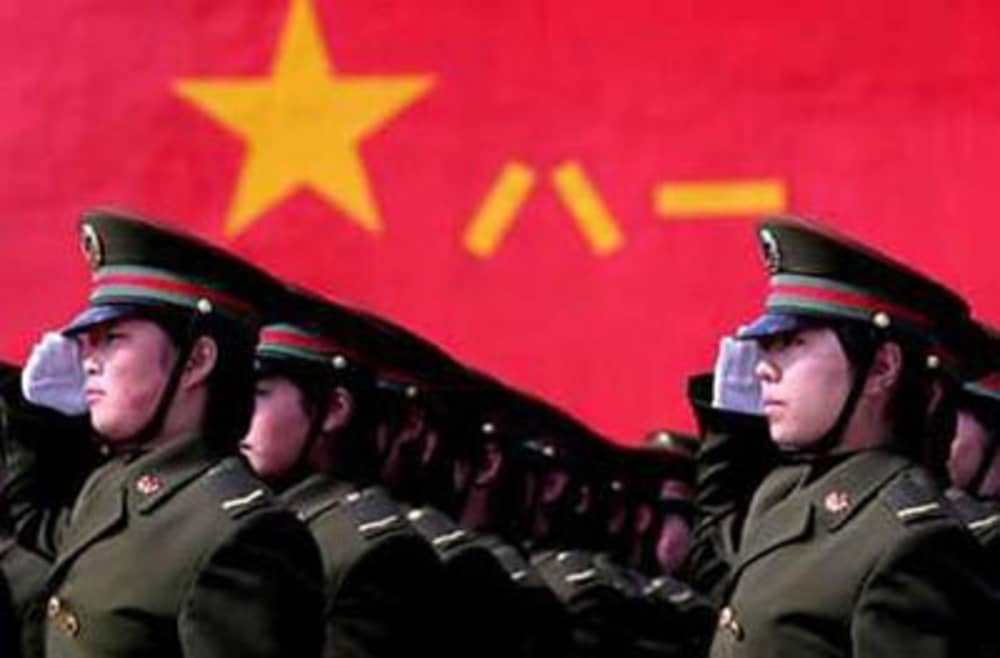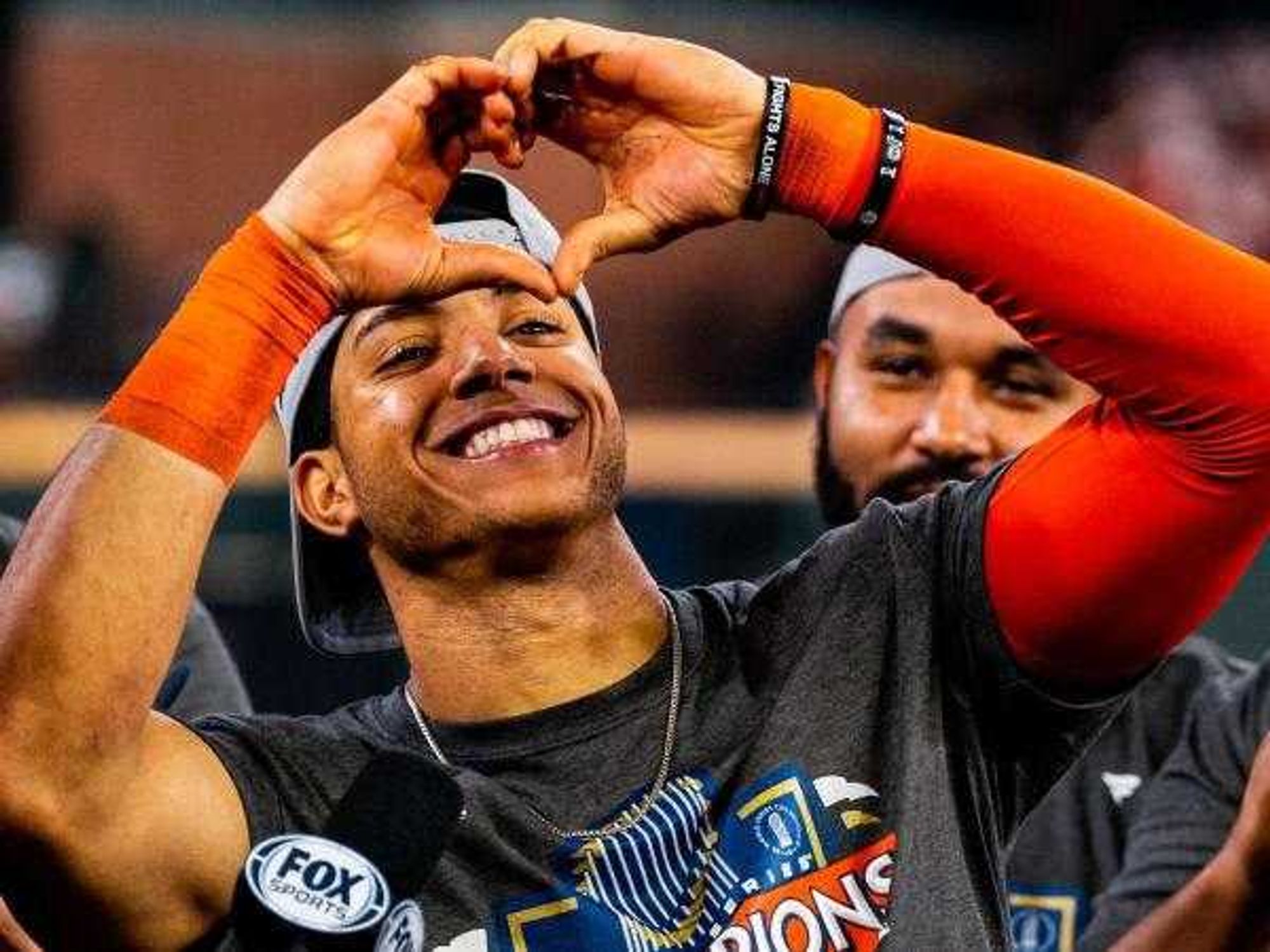Beyond the Boxscore
China's demands robbed Yao Ming of his rightful career: Retirement "ceremony"hides the truth
 Yao Ming, his wife Ye Li and Rockets owner Leslie Alexander talk at one of hislast public appearances in Houston.Photo by © Michelle Watson/CatchlightGroup.com
Yao Ming, his wife Ye Li and Rockets owner Leslie Alexander talk at one of hislast public appearances in Houston.Photo by © Michelle Watson/CatchlightGroup.com China always came first for Yao. Maybe, that's the way it should have been. Butthere's no denying it changed the course of his career.
China always came first for Yao. Maybe, that's the way it should have been. Butthere's no denying it changed the course of his career. Yao Ming was a great player, but he could have been one of the all-timegreatest. That didn't happen.
Yao Ming was a great player, but he could have been one of the all-timegreatest. That didn't happen.
Yao Ming chose to finally officially retire half a world away from the NBA franchise that made him rich, in the middle of a Houston night.
And you thought F. Scott Fitzgerald was great at symbolism? Yao couldn't have spelled out the realities of his basketball career better if he hit stateside sports writers over the head with five golden stars.
China owned Yao Ming from his first day in a Houston Rockets uniform to his last. It can be legitimately argued that's how it should be, that Yao's loyalty to his country is a large part of what makes him such an easily-admired man. It's absurd to suggest that didn't shape his career though — and in many ways, shatter it.
Yao limps into retirement at age 30 largely because China would not leave him alone. He was too important a national symbol, too crucial to the Chinese government's self image, to let be. So the 7-foot-6, 300-plus pound giant was pushed to play in every international competition deemed "important," pushed to go through grueling training camps with his national teammates too (who is he to put himself above the state?), pushed to ... breakdown.
He never had a chance. So the world's sports fans never had a chance to see just how good, just how dominate, Yao could have been. He's a sure Basketball Hall of Famer — his cross-cultural impact would be enough to guarantee that even if he didn't put up All-Star numbers and let's be real, the bar to get into Springfield, Mass. isn't all that high.
China owned Yao Ming from his first day in a Houston Rockets uniform to his last. It's absurd to suggest that didn't shape his career — and in many ways, shatter it.
But Yao Ming could have been — should have been, considering his exceptional skill level — one of the greatest centers of all time. He may have never been Wilt Chamberlain, Bill Russell, Kareem Abdul-Jabbar or the Rockets' own Dream, but he definitely should have been in any discussion that extended to figures like Shaquille O'Neal, David Robinson and Patrick Ewing.
Instead, Yao is a shadow that offered a mere glimpse of potential greatness before getting his feet crushed by the same authoritarian sports machine that helped build him.
None of this came up in that press conference in the Houston wee hours of Wednesday morning of course. Of course, this was as much a normal press conference as Will & Kate's nuptials were a normal wedding. In fact, it played out more like a coronation, a celebration that the great giant was coming home for good (whether he actually ends up living full time in China or not).
Yao played the dutiful, grateful son as always. With his body broken down and any vision of reaching his true NBA destiny long since shattered, why rock the Republic now? Yao was allowed to make more money than most people can dream of in any country, let alone China (Sports Illustrated ranks him as the fifth-highest earning non-U.S. athlete in the world with an annual income of $36 million, including endorsements — this in a down year when he barely left the trainer's room). He'll be treated like royalty from Shanghai to Dandong for the rest of his life.
Why worry about being denied the chance to be one of the greatest centers ever when the bounty is so plentiful?
Van Gundy's Burden
Jeff Van Gundy used to rail against the demands that Chinese basketball federation officials placed on Yao, to wonder when it would ever be enough, when Yao would finally be allowed to say no. The old Rockets coach has changed his tune since — Van Gundy suddenly lost his fire on a lot of issues (NBA referees targeting certain players, conspiracy theories) once he found that cushy TV job he's great at, one that NBA commissioner David Stern could throw a roadblock into with a few well-placed phone calls (see that new ESPN book for how Stern pushed to have Stephen A. Smith taken off the NBA).
Then again, maybe Van Gundy's new attitude — let's celebrate Yao for how great he was rather than lament what he should have been — isn't all about trying to appease a man he obviously fears who wants the NBA's story with China to be a happy one (Stern) and honor a man he obviously admires (Yao). Maybe, there's a little guilt in it too.
For Van Gundy is the coach who played Yao 37.2 minutes per game in the 2007-08 season. Chinese officials weren't the only ones who were a little greedy when it came to Yao. By the 2007-08 season, warning signs should have been flashing all over on the idea of Yao's oversized body needing special limits. He had already suffered a broken leg, a broken foot and dealt with an infected big toe by that point.
Yao needed to be treated gingerly, to be held back. Instead, Van Gundy played him like he was another Patrick Ewing. In fact, in his age 27 season, Ewing only averaged a little more than a minute more per game than Yao did in his (2007-08).
Still, if Yao had been allowed to rest in the summers, maybe he ends up getting to play for his rightful legacy regardless. Instead, after the inevitable injury ended that workload 07-08 season early, Yao rushed back from a fractured foot to play in the Beijing Olympics.
For Van Gundy is the coach who played Yao 37.2 minutes per game in the 2007-08 season. Chinese officials weren't the only ones who were a little greedy when it came to Yao.
He'd get one more good season — and the start of a great playoff series against the Los Angeles Lakers. Then, in arguably his finest moment, his body broke down again, this time for good (those five games at the start of this season mostly confirmed only how forever talented and how forever limited he'd be).
China got its Olympic moment, Yao lost his career.
Yao might be the first to say it was worth it, but it should be acknowledged. Instead, Yao spent his farewell, making some of the unexpected quips that help make him so endearing. "I will definitely be on earth," he cracked to all those TV cameras when asked about his future.
Houston doesn't do space anymore anyway.
Unfortunately, this retirement ceremony didn't do truth either. Yao talked about his career ending too fast, but never went into the reasons why. The sacrifices he was asked, really forced, to make weren't cited. Even when tears crept in.
Yao went out like China wanted him to, as dutiful as ever, a half world away from anyone in Houston heartbroken about what he should have been.
